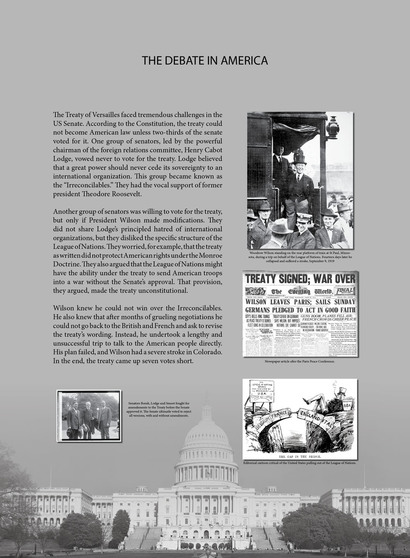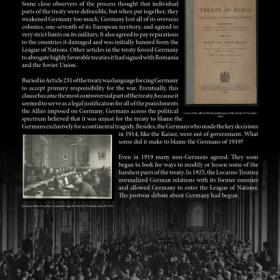The Debates in the U.S.
The Treaty of Versailles faced tremendous challenges in the US Senate. According to the Constitution, the treaty could not become American law unless two-thirds of the senators voted for it. One group of senators, led by the powerful chairman of the foreign relations committee, Henry Cabot Lodge, vowed never to vote for the treaty. Lodge believed that a great power should never cede its sovereignty to an international organization. This group became known as the “Irreconcilables.” They had the vocal support of former president Theodore Roosevelt.
Another group of senators was willing to vote for the treaty, but only if President Wilson made modifications. They did not share Lodge’s principled hatred of international organizations, but they disliked the specific structure of the League of Nations. They worried, for example, that the treaty as written did not protect American rights under the Monroe Doctrine. They also argued that the League of Nations might have the ability under the treaty to send American troops into a war without the Senate’s approval. That provision, they argued, made the treaty unconstitutional.
Wilson knew he could not win over the Irreconcilables. He also knew that after months of grueling negotiations he could not go back to the British and French and ask to revise the treaty’s wording. Instead, he undertook a lengthy and unsuccessful trip to talk to the American people directly. His scheme failed, and Wilson had a severe stroke in Colorado. In the end, the treaty came up seven votes short.


